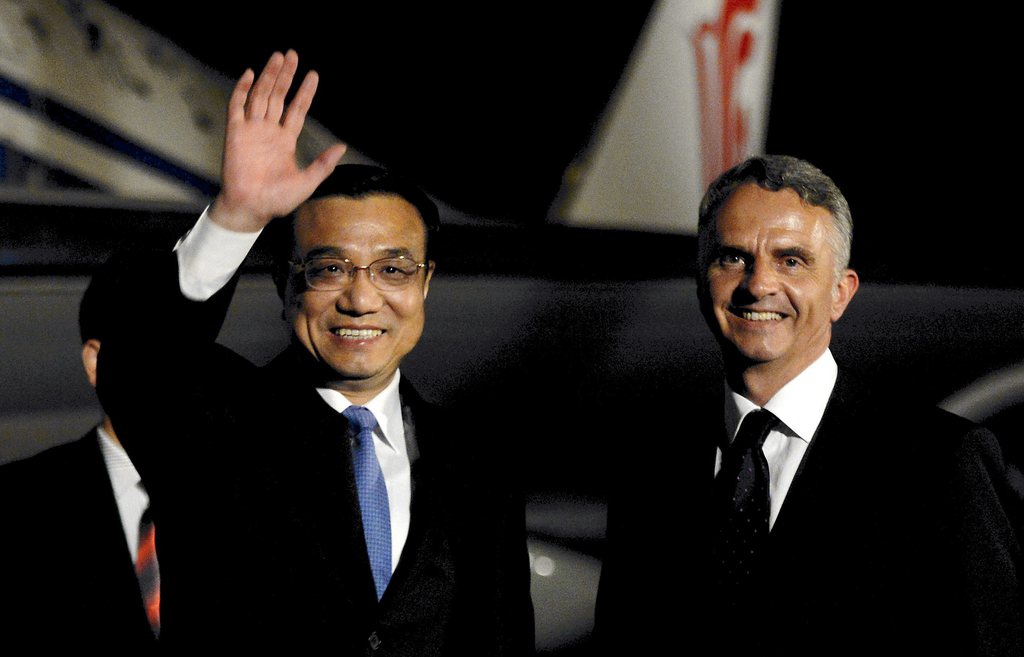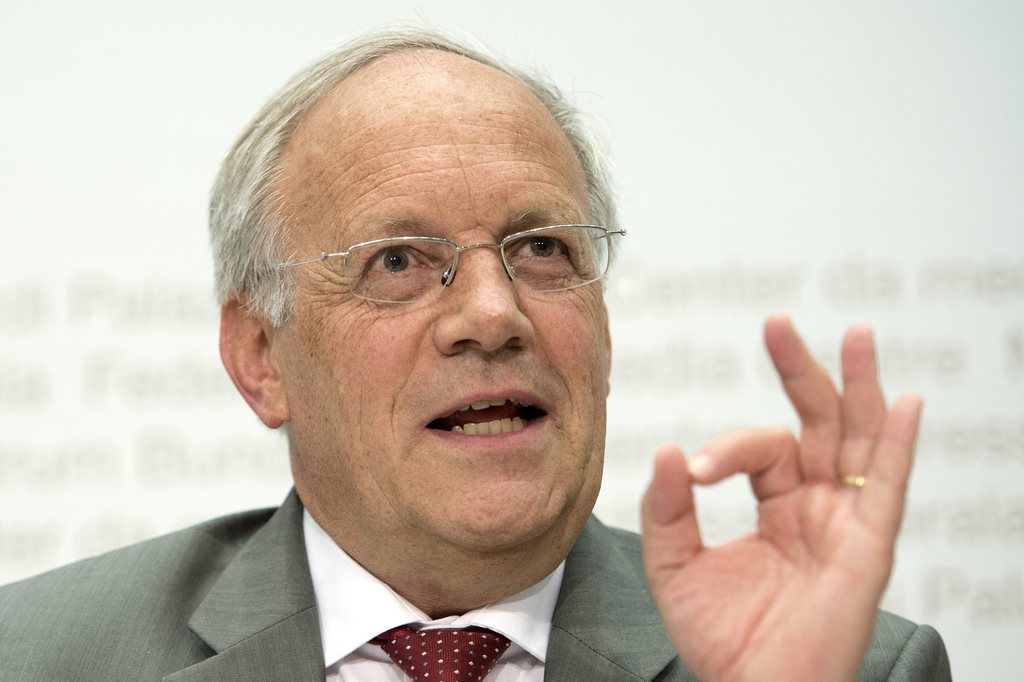Chinese prime minister praises deal with Swiss

On his first visit to Europe, Chinese Prime Minister Li Keqiang has praised a free trade deal with Switzerland, saying it would help Beijing open up its economy.
During a meeting with top business leaders in Zurich on Friday, Li said: “We have found common ground and put differences aside over the past two years.”
Li added that China’s economy had to grow and adapt. Switzerland was one of the countries which could benefit from it.
He said Beijing was keen to boost cooperation with Swiss banks.
Thomas Jordan, president of the Swiss National Bank, said the Swiss finance industry was interested in closer cooperation. He said Switzerland would like to become an offshore trading platform for the Chinese currency.
Economics Minister Johann Schneider-Ammann for his part said China was “a close friend” of Switzerland and its primary trading partner in Asia.
He said both negotiating teams had done a good job. The free trade deal is likely to be signed in July, according to Schneider-Ammann.
Both sides signed a series of formal declarations of intent to boost bilateral relations on free trade, financial matters, sustainable development, climate change and watches.
Swiss companies are doing particularly well in penetrating the Chinese market, according to the most comprehensive survey to date, published by the Swiss Center Shanghai on Thursday.
As many as 62% of the Swiss companies surveyed said they plan to increase their investments in China in 2013. More than half of them consider China as one of the top three target countries, according to the Swiss Center, which acts as a platform supporting operations of more than 200 Swiss companies in China and Asia.
The confidence level of foreign companies is higher than it was for 2012, while the confidence of Chinese companies is going down, the Swiss Center said. Swiss companies are more positive than all others in the long term. For the next five years, Swiss managers are “confident” to “extremely confident”, on average, that their operations in China will be successful, it said.
First stop Switzerland
Leading a high-ranking government delegation, Li arrived in Switzerland on Thursday for a two-day visit.
He was welcomed by the Swiss foreign minister, Didier Burkhalter.
A small group of Tibetan protesters gathered at Zurich airport upon Li’s arrival to demonstrate against Beijing’s human rights record. And on Friday, in central Bern, about 200 people gathered in a peaceful protest demanding freedom for Tibet and an end to Chinese human rights violations.
During a state visit to Switzerland in 1999 by then Chinese president Jiang Zemin a demonstration by Tibetans outside the Swiss parliament building caused a major diplomatic upset.
As a result relations cooled for several months.
In 2009 Chinese Prime Minister Wen Jiabao visited Switzerland among tight security.
Accelerating progress
In an open editorial in the prestigious Neue Zürcher Zeitung newspaper on Thursday, Li wrote that his visit sends a “strong signal” that China wants to “accelerate” the implementation of free trade between the two countries.
Switzerland was one of the first Western countries to establish diplomatic relations and to enter joint ventures with China, the Chinese prime minister pointed out in the editorial.
And Vice Minister of Foreign Affairs Song Tao noted in a Swiss radio interview that the Swiss company Schindler was one of the first three foreign companies to found joint ventures with Chinese businesses after China’s markets opened to the world.
With the free trade accord, Switzerland would be the first continental European country and the first from the 20 largest world economies to reach an important free trade agreement with China. Experts have described the deal as the most important for Switzerland in 40 years.
China is already Switzerland’s third major trading partner behind the European Union and the United States. A free trade agreement would further reduce tariffs and tolls and other trade barriers.

In compliance with the JTI standards
More: SWI swissinfo.ch certified by the Journalism Trust Initiative




You can find an overview of ongoing debates with our journalists here. Please join us!
If you want to start a conversation about a topic raised in this article or want to report factual errors, email us at english@swissinfo.ch.